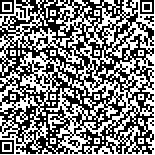| Quote
: |
潘江,曹洋,陈成,李赛群,章薇.电针心经/心包经穴对MCAO/R大鼠MeCP2磷酸化影响的研究[J].湖南中医药大学学报英文版,2022,42(11):1884-1890.[Click to copy
] |
|
| |
|
|
| This paper
:Browser 3161times Download 2065times |
| 电针心经/心包经穴对MCAO/R大鼠MeCP2磷酸化影响的研究 |
| 潘江,曹洋,陈成,李赛群,章薇 |
| (湖南中医药大学第一附属医院, 湖南 长沙 410007;湖南中医药大学第一附属医院, 湖南 长沙 410007;湖南中医药大学, 湖南 长沙 410208) |
| 摘要: |
| 目的 观察电针心经/心包经穴对中动脉先闭塞再灌注(middle cerebral artery occlusion/reperfusion, MCAO/R)大鼠神经功能缺损、脑梗死体积、脑组织中甲基化CpG结合蛋白2(methyl CpG binding protein 2, MeCP2)磷酸化修饰状态的影响。方法 雄性SD大鼠随机分为正常组40只、假手术组40只、造模组120只。造模组采用改良颈外动脉插入线栓法建立MCAO/R模型,假手术组予以血管分离后不插线缝合。将造模组造模成功的大鼠再次随机分为模型组、心经穴组、心包经穴组,每组40只。再将各组分为1 d、7 d、14 d、21 d亚组,每亚组10只。正常组、假手术组和模型组捆绑处理,不予电针;心包经组和心经穴组进行电针治疗,每次30 min,1次/d。观察大鼠神经功能缺损评分及脑梗死体积的变化,采用RT-PCR检测脑缺血组织中MeCP2 mRNA的表达,采用Western blot检测脑缺血组织中MeCP2、pMeCP2的蛋白表达。结果 与模型组相比:心经穴组大鼠在7 d时MeCP2蛋白表达增高(P<0.05),在14 d、21 d神经功能缺损评分、MeCP2 mRNA均降低(P<0.05);心包经穴组大鼠在7 d、14 d、21 d神经功能缺损评分、MeCP2 mRNA均降低(P<0.05),在7 d时MeCP2蛋白表达增高,在21 d时MeCP2蛋白表达降低(P<0.05);心经穴组、心包经穴组在7 d、14 d、21 d的pMeCP2蛋白表达均增高(P<0.05)。与心经穴组相比:心包经穴组的MeCP2 mRNA在14 d时增高、在21 d时降低(P<0.05),MeCP2蛋白表达在7 d时增高(P<0.05)。在改善神经功能缺损评分及pMeCP2蛋白的表达方面,心经穴组、心包经穴组效应相当(P>0.05)。结论 电针心经/心包经穴可改善脑缺血大鼠神经功能缺损症状,促进MeCP2磷酸化,在作用时间及作用持续性方面两经具有一定的经穴特异性。 |
| 关键词: 脑缺血 电针 中动脉先闭塞再灌注 甲基化CpG结合蛋白2 心经 心包经 |
| DOI:10.3969/j.issn.1674-070X.2022.11.018 |
| Received:February 07, 2022 |
| 基金项目:国家自然科学基金项目(82105002,81473754);湖南省卫生健康委员会科研项目(B202319018273)。 |
|
| Effects of electroacupuncture at heart/pericardium meridian points on the MeCP2 phosphorylation in MCAO/R rats |
| PAN Jiang,CAO Yang,CHEN Cheng,LI Saiqun,ZHANG Wei |
| (The First Hospital of Hunan University of Chinese Medicine, Changsha, Hunan 410007, China;The First Hospital of Hunan University of Chinese Medicine, Changsha, Hunan 410007, China;Hunan University of Chinese Medicine, Changsha, Hunan 410208, China) |
| Abstract: |
| Objective To observe the effects of electroacupuncture at the heart/pericardium meridians on the neurological function impairment, cerebral infarction volume, and phosphorylation of methylated CpG binding protein 2 (MeCP2) in brain tissues of middle cerebral artery occlusion/reperfusion (MCAO/R) rats. Methods Male SD rats were randomly divided into normal group (40 rats), sham operation group (40 rats) and modeling group (120 rats). The MCAO/R model was established in the model group by the modified method of inserting thread into the external carotid artery. The sham operation group was treated with vascular separation without suture. The rats with successful modeling were then randomly divided into model group, heart meridian point group and pericardium meridian point group, with 40 rats in each group. Each group was then divided into 1 d, 7 d, 14 d and 21 d subgroups, with 10 rats in each subgroup. The normal group, the sham operation group and the model group were treated by binding without electroacupuncture; the pericardium meridian point group and the heart meridian point group were treated with electroacupuncture for 30 min each time, once a day. Changes of neurological function impairment score and cerebral infarction volume in rats were observed; the expression of MeCP2 mRNA in cerebral ischemic tissues was detected by qPCR, and the expression of MeCP2 and pMeCP2 proteins in cerebral ischemic tissues was detected by Western blot. Results Compared with the model group, the expression of MeCP2 protein in the heart meridian point group increased on the 7 d (P<0.05), and the score of neural function defect and MeCP2 mRNA decreased at 14 d , 21 d (P<0.05). The score of neural function defect and MeCP2 mRNA in the pericardium meridian group decreased at 7 d, 14 d and 21 d (P<0.05); the expression of MeCP2 protein increased on the 7 d, and the expression of MeCP2 protein decreased on the 21d (P<0.05). The expression of pMeCP2 protein in the heart meridian point group and pericardium meridian group increased at 7 d, 14 d and 21 d (P<0.05). Compared with the heart meridian point group, the MeCP2 mRNA in the pericardium meridian group increased on the 14 d, decreased on the 21 d (P<0.05), and the MeCP2 protein expression increased on the 7 d (P<0.05). The heart meridian point group and pericardium meridian group had similar effects in improving the neurological deficit score and the expression of pMeCP2 protein (P>0.05). Conclusion Electroacupuncture at the heart meridian/pericardium meridian points could improve the symptoms of neurological function impairment in rats with cerebral ischemia, and promote MeCP2 phosphorylation. Certain specificity is shown in two meridians as to the action time and duration. |
| Key words: cerebral ischemia electroacupuncture middle cerebral artery occlusion/reperfusion methyl CpG binding protein 2 heart meridian pericardium meridian |
|

二维码(扫一下试试看!) |
|
|
|
|


